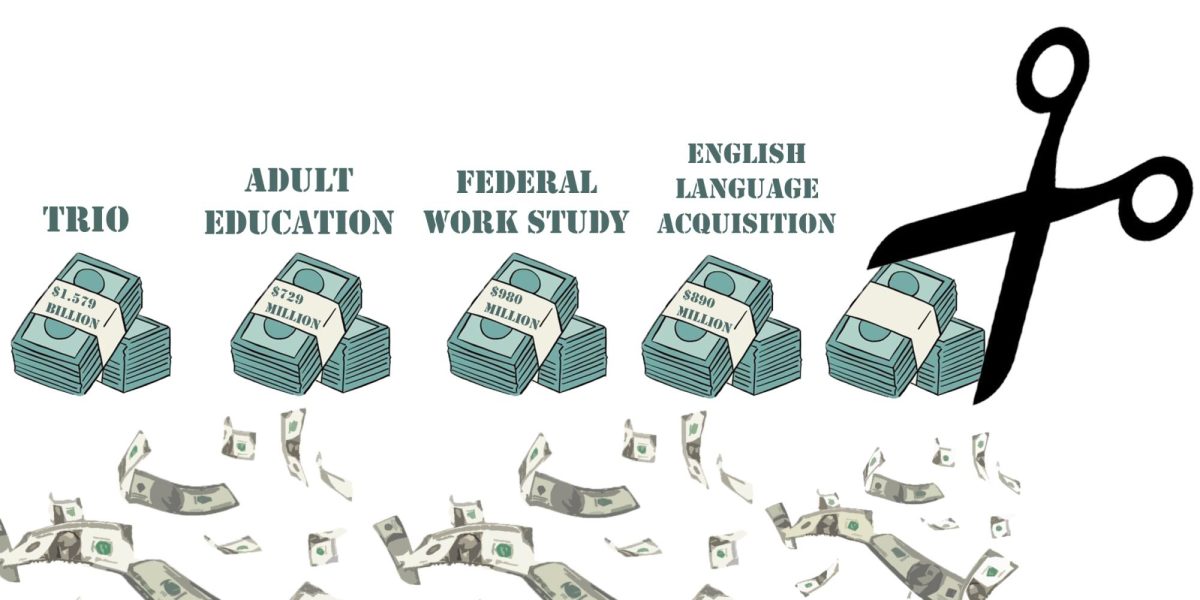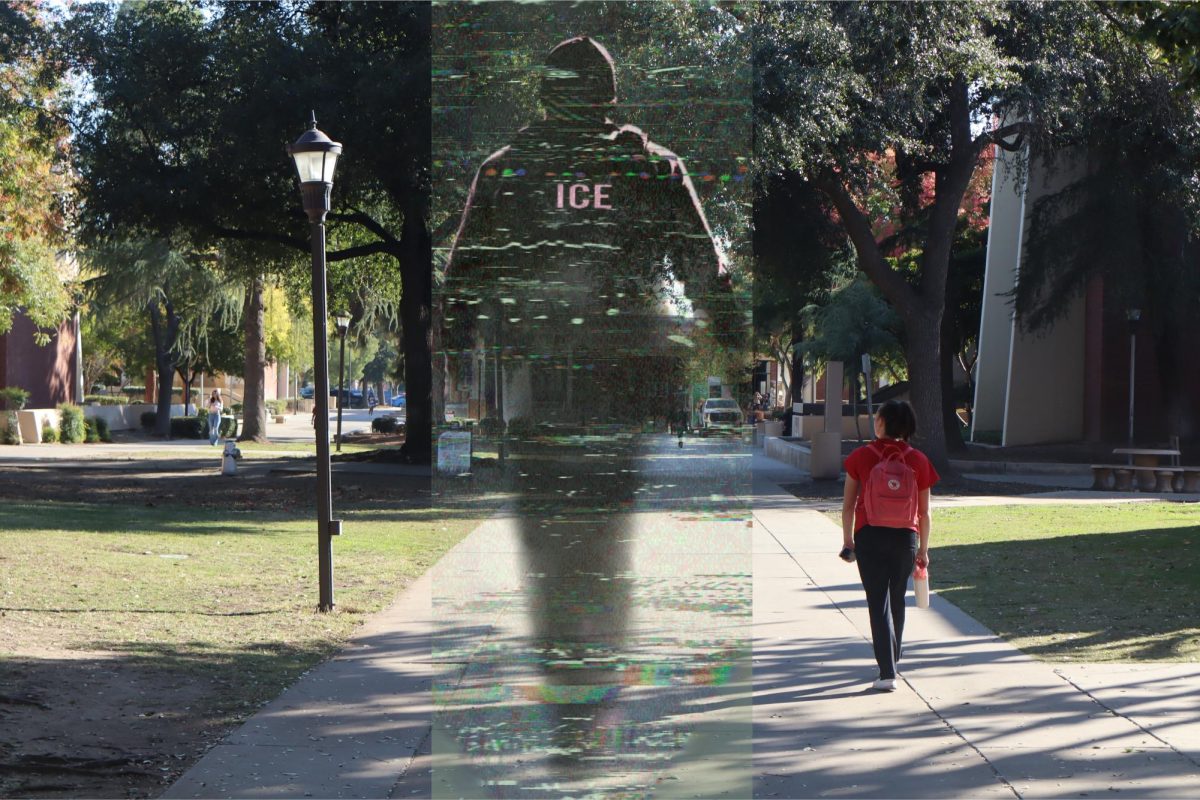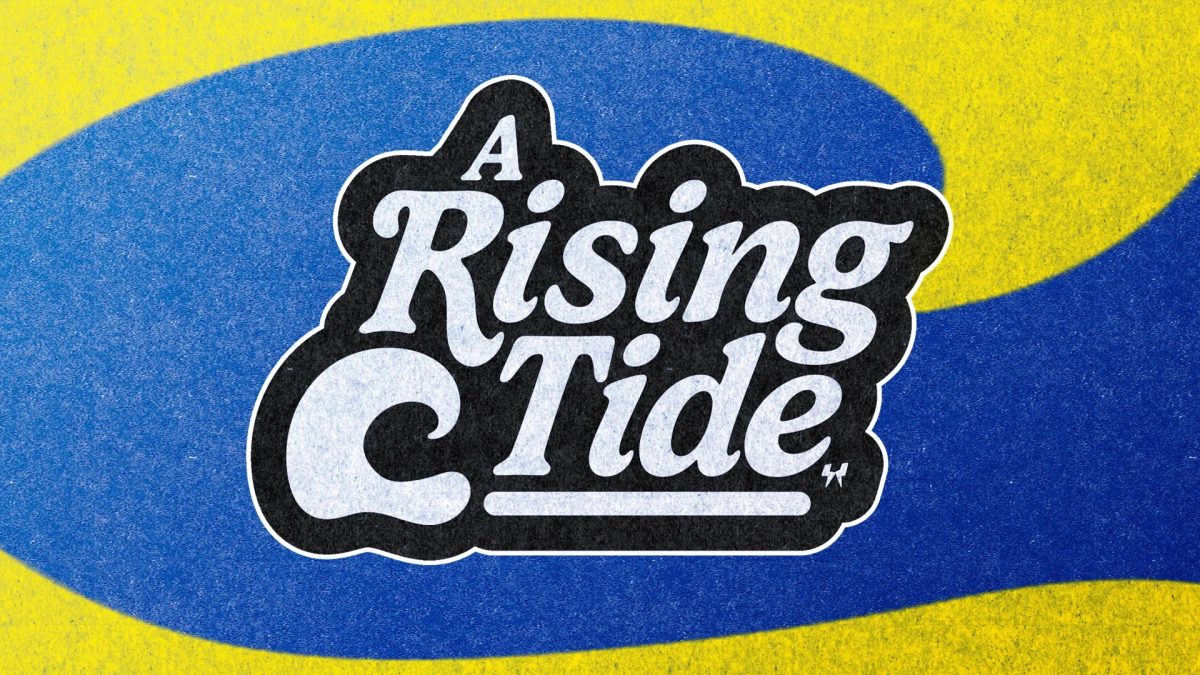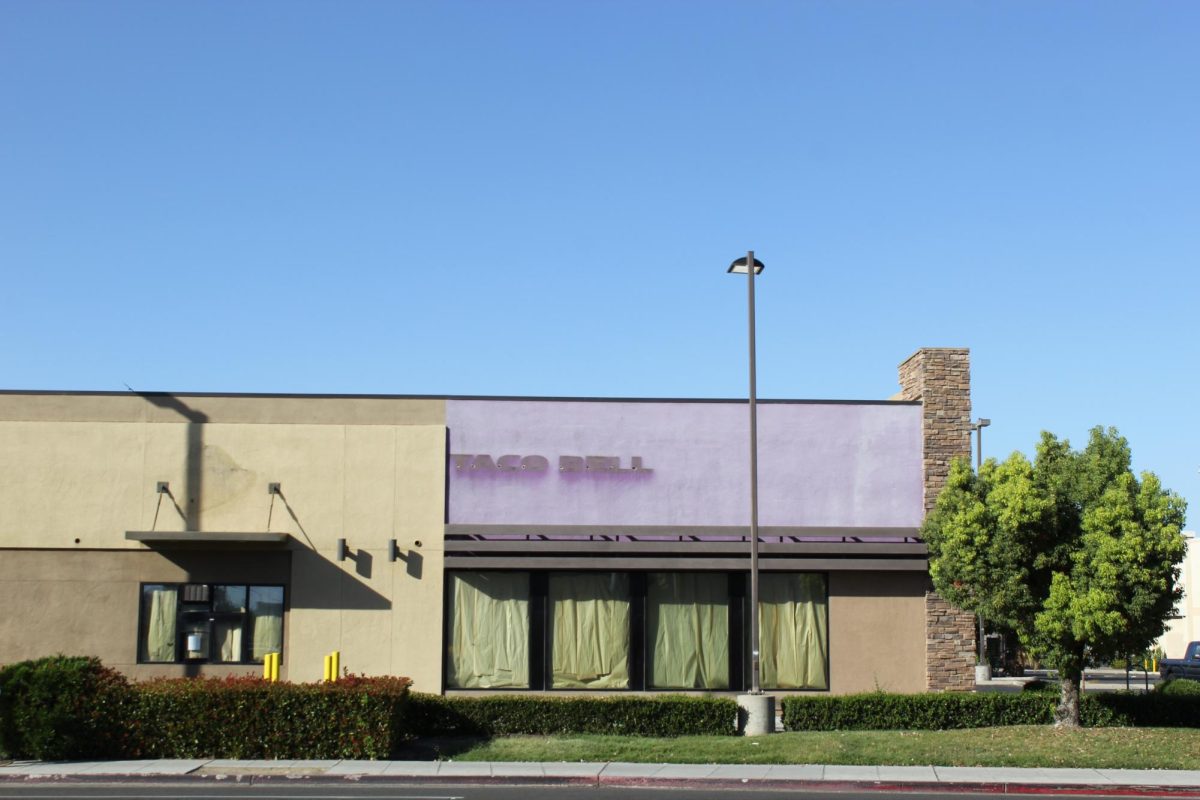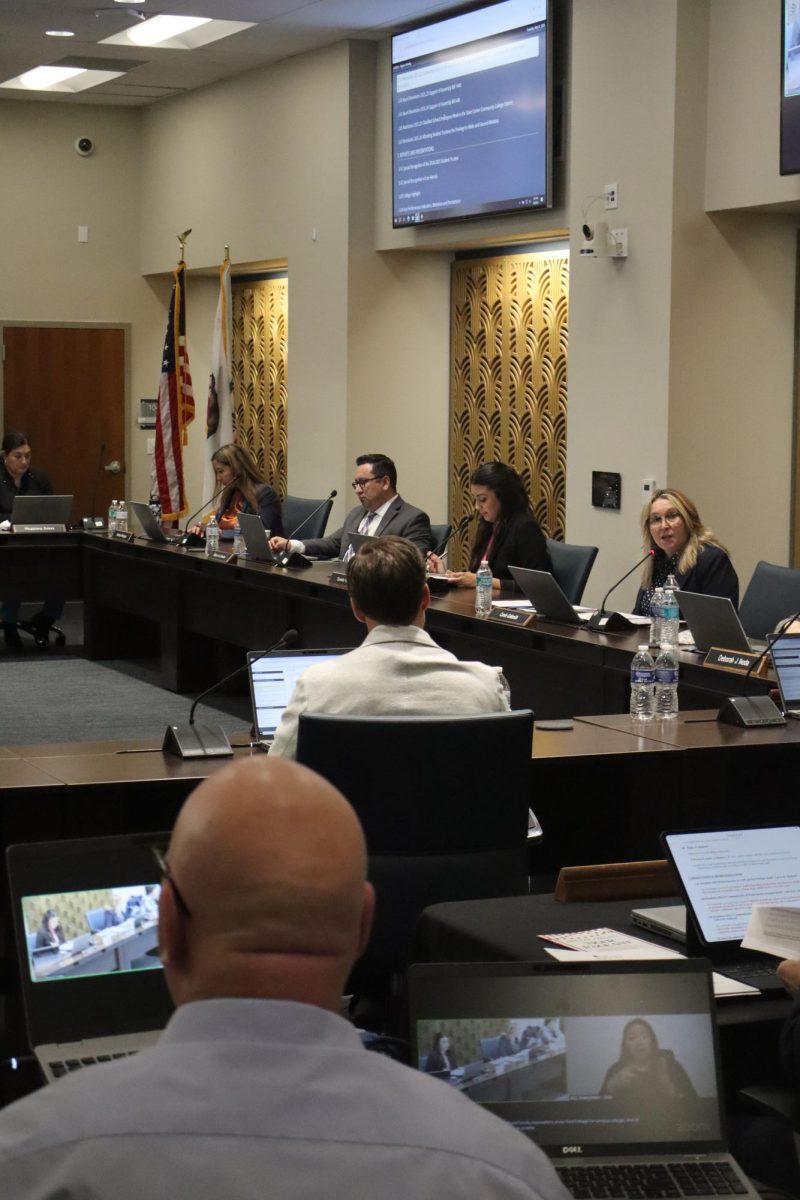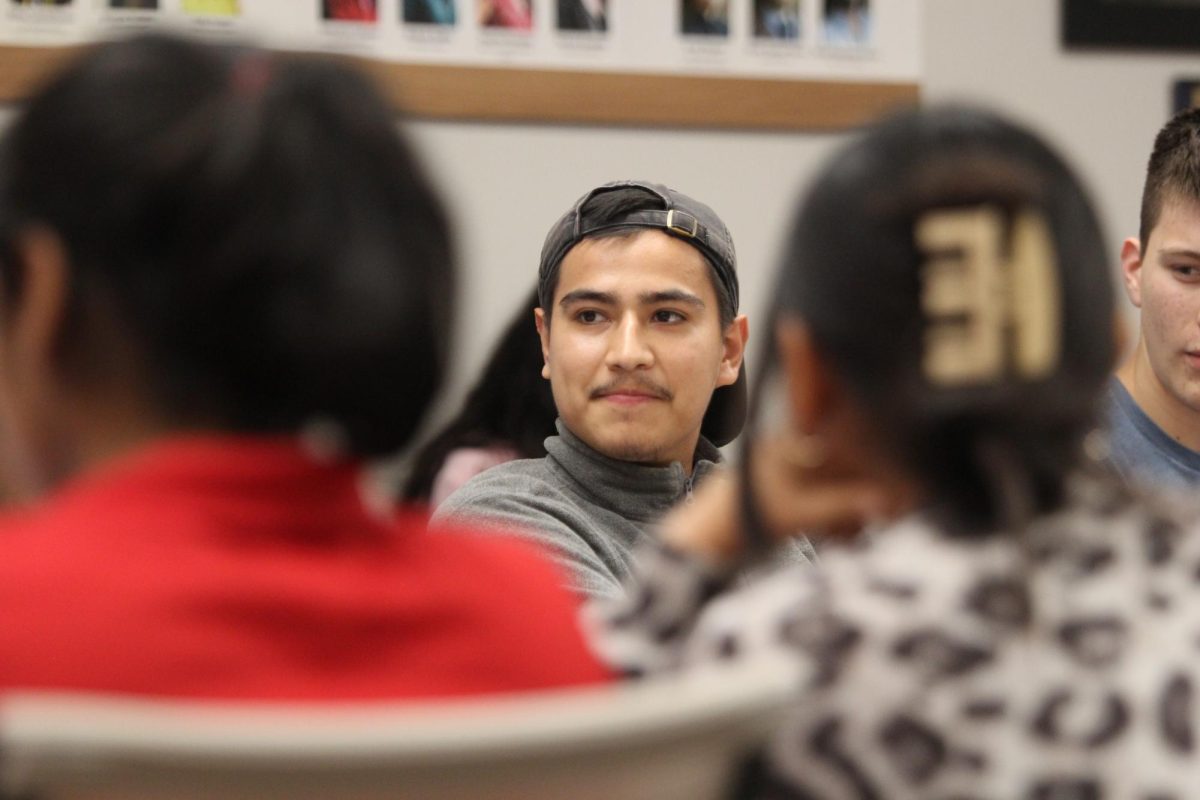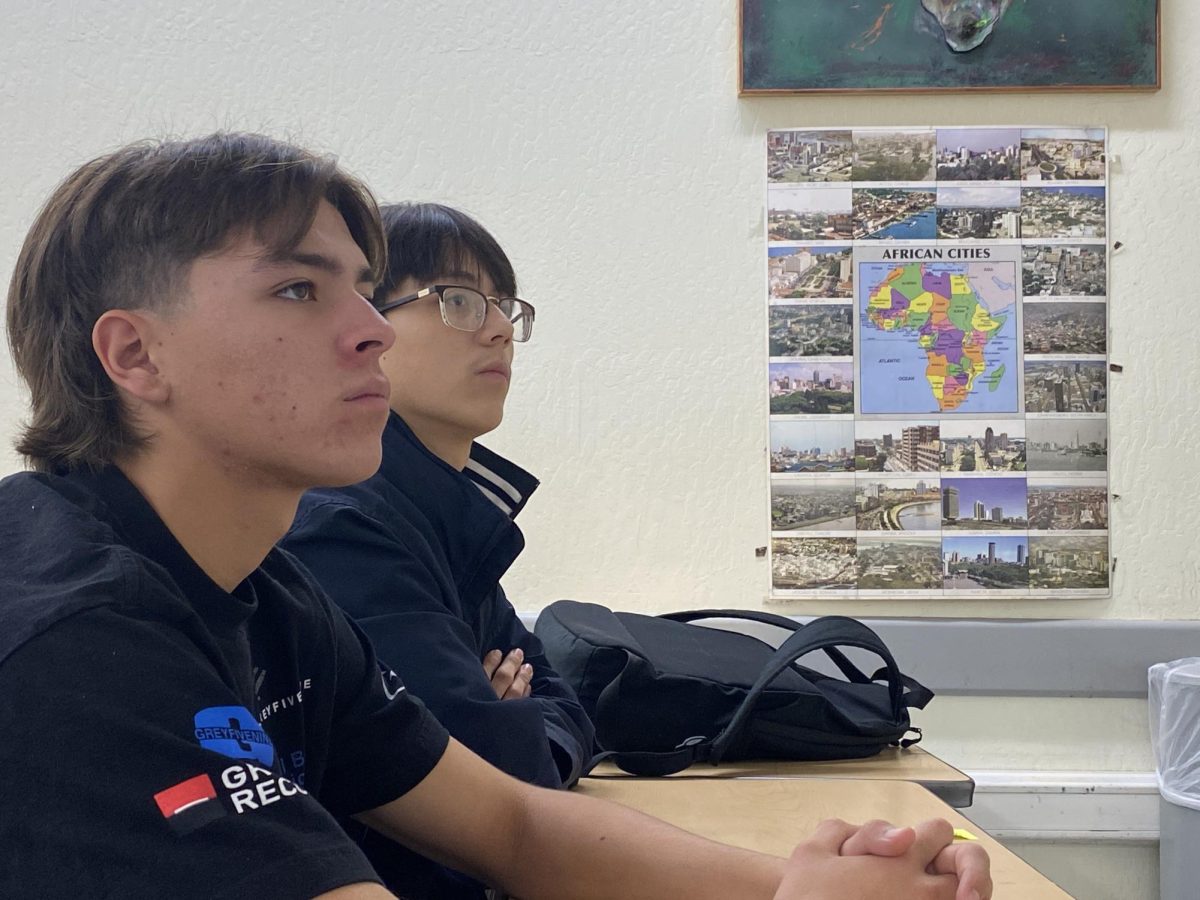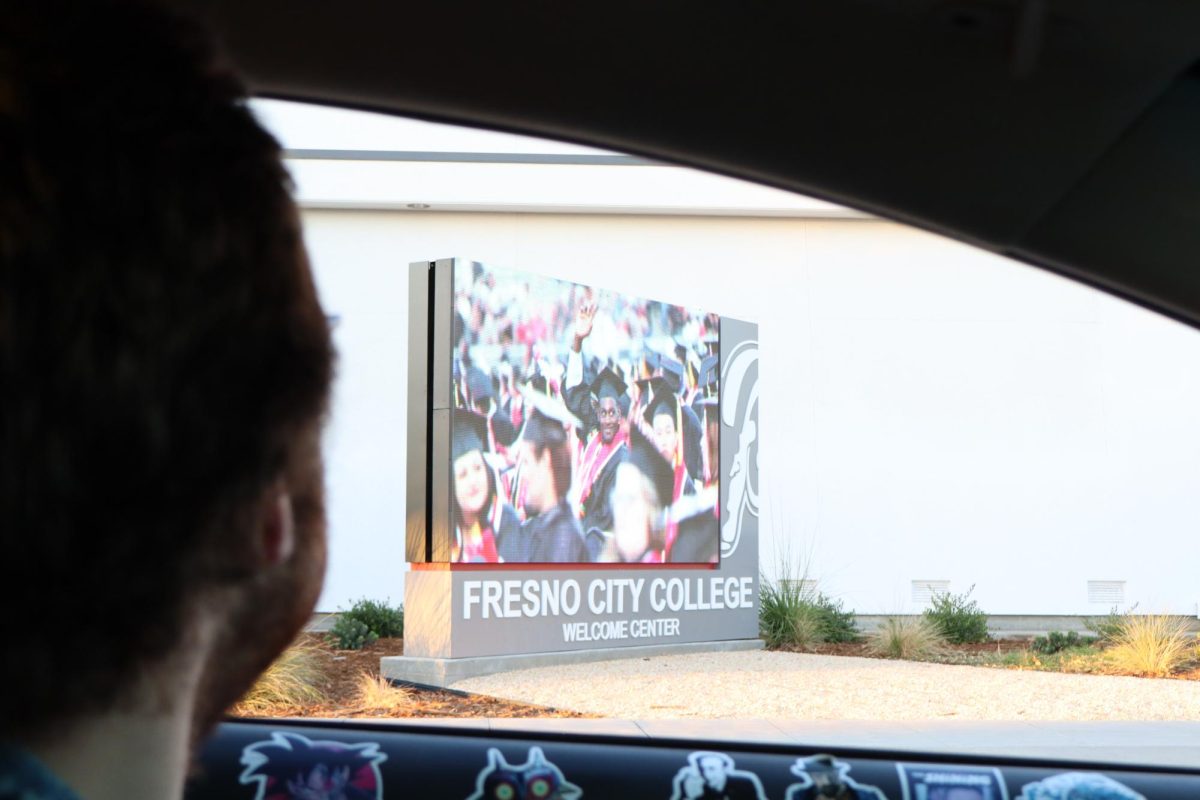Fresno City College programs supporting low-income learners, adult learners, first-generation students and college-bound students may lose federal funding due to the Trump administration’s budget proposal for the 2026 fiscal year.
Major budget changes to programs under the U.S. Department of Education include cuts to:
- TRIO programs and Gaining Early Awareness and Readiness for Undergraduate Programs (GEAR UP): -$1.579 billion
- Federal Work-Study (FWS): -$980 million
- English Language Acquisition: -$890 million
- Adult Education: -$729 million
If passed by the U.S. Congress, the TRIO program would be eliminated, according to Cristofer Araujo, a TRIO Student Support Services (SSS) academic counselor.
Jill Wagner, a Fresno City College spokesperson, wrote in an email that federal budget proposals typically face revisions before the finalized copy.
“We are monitoring developments closely, and will continue to advocate for the resources our students and programs need,” she said.
Wagner stated with regards to federal work-study that, “it’s premature to speculate whether the proposed cuts will directly affect our program.”
She pointed to an increased allocation of $300,000 for the FWS program at FCC for the 2025-2026 award year.
TRIO
At FCC, TRIO has three programs, including Student Support Services (SSS) supporting low-income, first-generation and college students with disabilities through academic counseling. Eighty-one students were a part of TRIO SSS in spring 2024, according to data from FCC’s Institutional Research and Effectiveness.
“We’re kind of like a speakeasy, a hidden bar, and nobody really knows much about us. But, once people find out about us, they’re like ‘Oh wow, I didn’t know how great of a program we are,’” Araujo said.
He said the program is a safety net for students who may not be able to apply for larger education programs such as Extended Opportunity Programs and Services (EOPS).
TRIO’s defunding could disproportionately affect the low-income and marginalized communities it serves. Araujo said the emotional support, resume building and college rejection appeals for TRIO SSS students would disappear if the program is eliminated.
“That’s where students really do need us,” Araujo said. “I’ve noticed that there was a lack of guidance within myself [as a former student], so I can only imagine the amount of students that don’t have that guidance within them.”
He noticed the further involvement of people in higher positions than him advocating for the program’s future and continual meetings regarding federal politics as a worrying sign.
Araujo is concerned for the future of his students, more so than his own since he can move into a different department.
“I get emails from them saying how grateful they are, from us providing them this assistance, so I can only imagine the students are not gonna get that privilege in the future,” he said.
However, Araujo said the work continues to serve the students and he encouraged people to consider applying for TRIO. He is trying to remain optimistic and highlighted that TRIO’s funding has been threatened more than once.
Adult Education
Eric Morin, a counselor for FCC Adult Education, said the program supports the English for Multi Lingual Students (EMLS) department and adult schools in Fresno County.
The FCC program offers the tuition-free High School Equivalency Preparation Classes (HiSET), which is an alternative to General Educational Development (GED) and equivalent to a high school diploma in California.
The budget proposal includes claims that returning education management to the state will increase the quality of K-12 education. This would make adult education less necessary, because fewer individuals will need to go to school later in life.
“To have programs like the adult schools and all that isn’t just reflective of ‘K-12 failed them.’ It could just be life dictated [that] I had to put my priorities in a different space at a particular spot in time,” Morin said.
He said some students may have been ready to attend college straight after high school, but circumstances may stop others for decades into their adult life.
Morin said adult education offers a pivot into new careers for hard-working individuals who may already be working jobs and have families to care for on top of being a student. If adult education were to disappear, he said the opportunities are taken away from people trying to grow.
“If the program is there right now, take advantage,” Morin said. “You don’t know when it will ever get cut, but what they can’t take away from you is what you did learn while you were there.”
English Language Acquisition
The English for Multi Lingual Students (EMLS) program does not receive federal grants that relate to the English Language Acquisition cuts, according to Sally Potter, an EMLS co-chair.
English Language Acquisition is described on the budget as promoting bilingualism, which is claimed to decrease the importance of English.
“There’s no evidence to support that bilingualism is in any way detrimental to anyone,” said Alyssa Tobar, an EMLS instructor at FCC. “That makes no sense to me, especially as a linguist.”
She said evidence shows that learning languages stimulates brain activity and strengthens communication abilities.
According to Tobar, programs like EMLS can be lifelines for its students, offering chances to many adult learners to socialize with other adults.
“I’ve had students tell me ‘I would go crazy if I didn’t have this,’” Tobar said.
The program serves local community members from across the world, with young and old students, asylum seekers or refugees. It serves individuals hoping to pursue a college degree as well as those who want to interact with the community.
“[Some] just wanna be able to talk to their kid’s teachers. They wanna be able to go to the doctor’s office and not need a translator,” Tobar said.
Ayed Almodhgi, a 55-year-old student from Yemen, said he enjoys learning more about English. He immigrated to the United States in 2006 and hopes to get a better job from increasing his proficiency.

